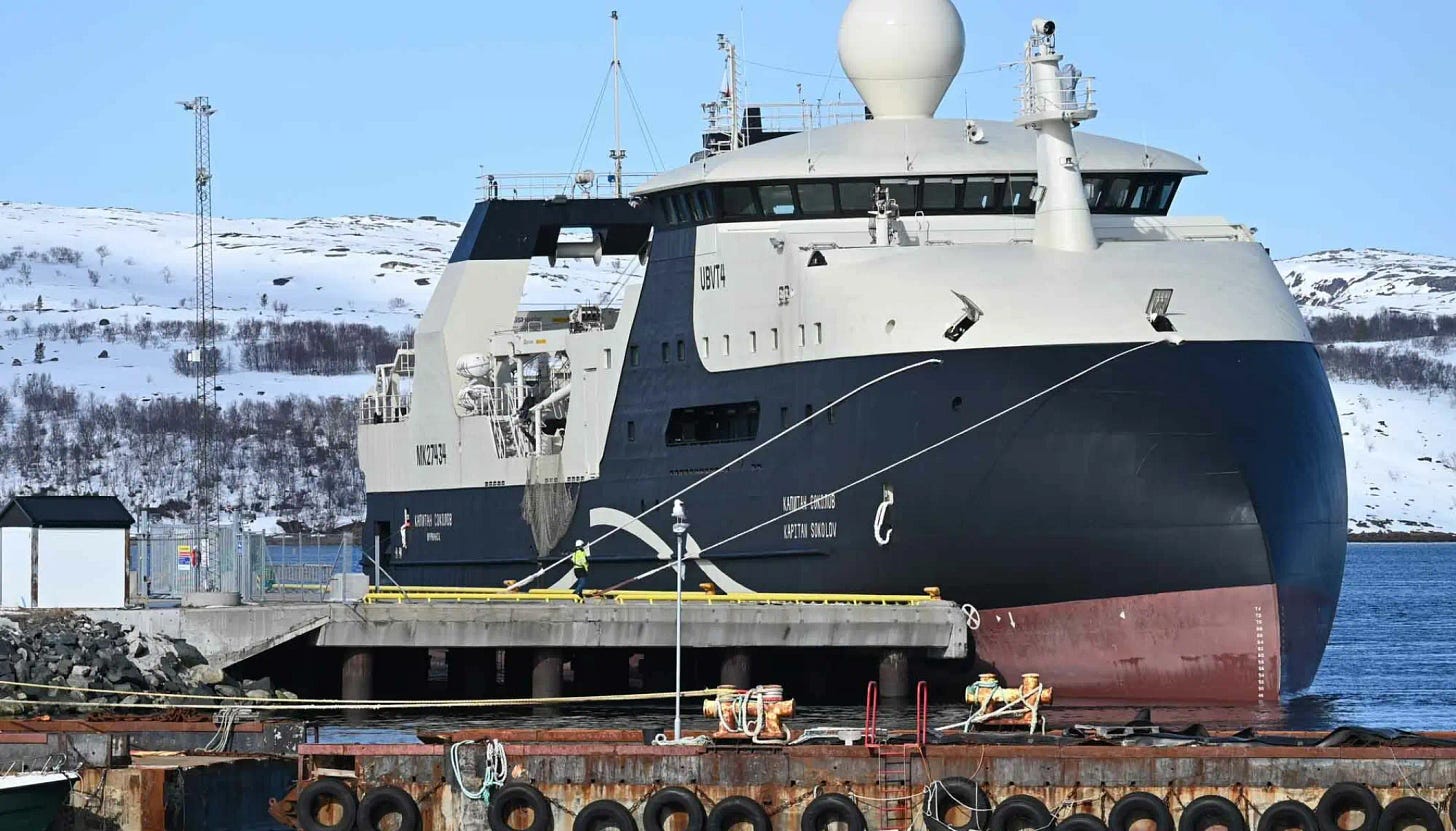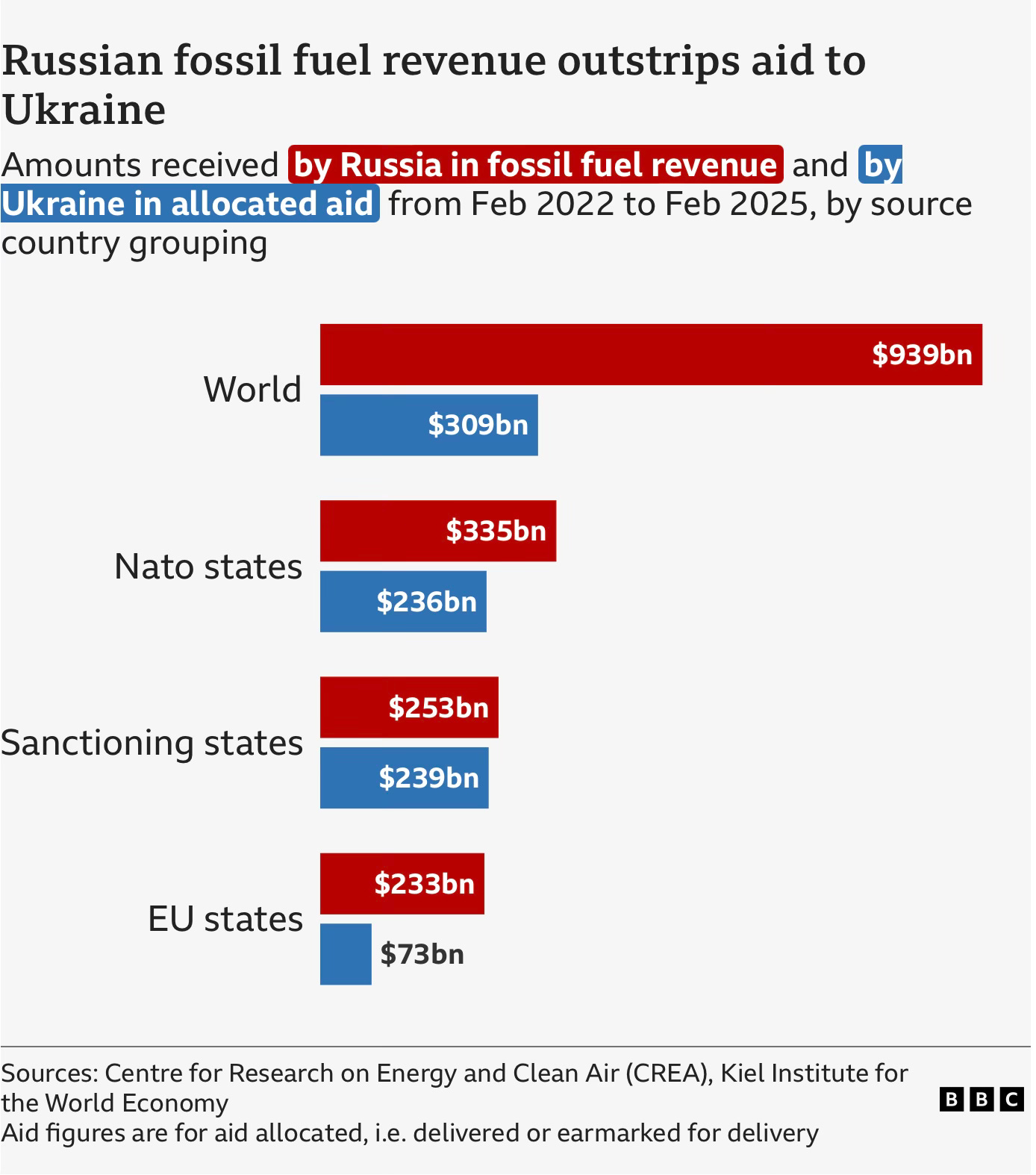Europe takes some positive steps, but there's more work to be done
Russia continued its fuckery, but a few chickens have come home to roost
A friendly reminder that Rant! is a reader-supported publication. Thank you for making this newsletter possible!
ALEX’S WEEKLY RANT!
Western governments revealed that Russia carried out a massive cyber operation against multiple countries aimed at disrupting Western aid to Ukraine. GRU unit 26165, also known as “Fancy Bear,” targeted dozens of logistics providers and technology companies as well as government organizations across nearly all forms of transportation (air, sea, and rail), within NATO member states and Ukraine. Targets included defense industry entities, means of transportation and transportation hubs (port, airports, etc.), maritime entities, air traffic management, and IT services. As part of this operation, Fancy Bear hacked more than 10,000 border and other surveillance cameras across Europe to spy on Western aid to Ukraine.
These methods were meant to provide battlefield intelligence (what weapons are arriving where in Ukraine) as well as intelligence to help guide future sabotage operations. Russia has actively been recruiting people online and slowly ratcheting up the tasks they ask them to carry out. A recruit might be offered 200 euros to take photographs of a naval base, and within a few weeks is being asked to plant explosives on a railway to disrupt weapons transfers to Ukraine.
Poland’s Prime Minister Donald Tusk, meanwhile, announced that Poland had stopped a Russian shadow fleet tanker that had been performing “suspicious maneuvers” near an underwater power cable that supplies electricity to Poland and Sweden. The Polish Navy sent its own ship to the area to check for explosives near the underwater infrastructure.
As you may recall, only two weeks ago I wrote about a Russian fighter jet entering Estonian air space to interfere with the Estonian Navy’s attempts to turn back a Russian shadow fleet ship.
This past week, two Russian jets violated Finnish air space, while two Polish fighter jets intercepted a Russian tactical bomber over the Baltic Sea.
That’s all really depressing, Alex. You said there were positive developments?
There is some good news!
In its 17th sanctions package, introduced last week, the EU hit a few more critical companies. Why this wasn’t done in, say, the first or even seventh or sixteenth sanctions package is a mystery to me, but hey, at least it’s being done now.
Among the entities listed are Norebo and Murman Seafood companies, based in Murmansk. “But they’re just harmless fishermen who give us tasty frozen fish!” I hear you say. Alas, no. These two companies don’t just send ships out to fish. They also send ships out to spy under the cover of fishing. Several of the companies’ ships have allegedly been involved in mapping undersea infrastructure and loitering near military sites and are believed to have sensitive equipment on board (i.e. to collect signals intelligence and other data).

If you’ve taken my Foreign Influence Operations course, you know already that the Russian government coopts businesses to act on behalf of the state. But don’t worry, there’s a payoff (for the owner, not for the crew taking the risks, of course; the owner of Norebo is worth more than $2 billion and reportedly saw his wealth double over the last year. Probably just a coincidence.)
In other good news, prosecutions have started against some of Russia’s hybrid war proxies who fucked around and are beginning to find out. In Germany, a man allegedly recruited by Russian intelligence online and tasked with planning arson attacks on several targets, including US military facilities and an oil plant, is finally seeing the inside of a courtroom.
Also facing accountability this week is Aivo Peterson, on trial for treason in Estonia. He allegedly tried to set up a paramilitary group in Estonia, with help from Russian intelligence. The group would fill a power vacuum that might be created by chaos on the ground—chaos fomented by Russian destabilization activities. It sounds eerily like what Russia had planned in Montenegro in 2016 (see Class 7 of my Foreign Influence Operations course) and like what we saw attempted in the US on January 6. Peterson faces a 17-year prison sentence if found guilty.
And a big deal this week: Germany’s Friedrich Merz (who, it turns out, is really tall; I had no idea. He’s 1.98 meters, or 6’6”!) announced Germany will help Ukraine develop its own long-range missile systems, which will help Ukraine free itself from its reliance on the United States.
That’s great, Alex! So I can go celebrate now?
No! Much more can and should be done. And—this may surprise you—I have some thoughts.
Visas: The EU issued 25 percent more Schengen visas to Russians in 2024 than in 2023. Ninety percent of these were tourist visas. Wtf? No. You don’t get to come on vacation to Europe while your government is actively trying to destabilize Europe. GTFO.
Gas: The EU remains the fourth largest buyer of Russia’s oil and gas. In fact, according to this BBC analysis, Europe and NATO states have paid Russia more for fossil fuels than they have given Ukraine in aid, meaning they are helping to fund the war Russia is waging, while at the same time helping fund, to a lesser degree, Ukraine’s defense. This seems…counterproductive.
Shadow Fleet: The shadow fleet is made up of uninsured or underinsured vessels that do not meet international maritime standards and purposely turn off or spoof their AIS to make them hard to track because they are carrying sanctioned Russian oil. Setting aside the fact that the shadow fleet is destroying critical infrastructure and posing enormous environmental hazards in the Baltic Sea, the crucial fact here is that 75 percent of Russian oil money comes from the shadow fleet. Disrupting these vessels and making evading sanctions even more costly would have a huge effect on Russia’s economy, which is already teetering. That in turn would affect the war in Ukraine and the war in Europe—including kinetic attacks and influence operations—by starving Russia of funds to feed these operations.
We are seeing some positive trends, but there is still work to be done. But we can do it! Europe is capable of helping Ukraine win, even without the US. That would also mean a win for Europe and for democracy.
Have a great weekend, everybody.
THE WEEK’S LINKS
A roundup of things you should be reading
TRUMP AND AUTHORITARIANISM
Beware: We Are Entering a New Phase of the Trump Era (New York Times)
The future of history: Trump could leave less documentation behind than any previous US president (Associated Press)
FROZEN RUSSIAN ASSETS
Russia sanctions emptied these London mansions. Now they’re falling apart. (Politico)
RUSSIA PLAYS THE LONG GAME
As the Soviet Union Fell, Did the KGB Leave Behind a Gift in Brazil? (New York Times)
Russia Used Brazil to Create Deep-Cover Spies (New York Times)
POLITICIZATION OF INTELLIGENCE
Official Pushed to Rewrite Intelligence So It Could Not Be ‘Used Against’ Trump (New York Times)
EXCELLENT RESOURCES!
Just Security has launched WHAT JUST HAPPENED? as well as a litigation tracker to help readers keep up with the chaos
Alex Finley is a former officer of the CIA’s Directorate of Operations, where she served in West Africa and Europe. She writes and teaches about terrorism, disinformation / covert influence, and oligarch yachts. Her writing has appeared in Slate, Reductress, Funny or Die, POLITICO, The Center for Public Integrity, and other publications. She has spoken to the BBC, MSNBC, CNN, C-SPAN’s Washington Journal, France24, and numerous other media outlets. She was also invited once to speak at Harvard, which she now tells everyone within the first ten seconds of meeting them. She is the author of the Victor Caro series, satirical novels about the CIA. Before joining the CIA, Alex was a journalist, covering Capitol Hill, the Pentagon, and the Department of Energy. She reported on issues related to national security, intelligence, and homeland security. Did she mention she was invited to speak at Harvard?







Since the shadow fleet turns off their AIS, what stops Russians enemies from seizing these ships and stealing the oil?
Like why aren’t European intelligence agencies capturing these vessels, charging the crews with espionage, and using asset forfeiture to take the oil?